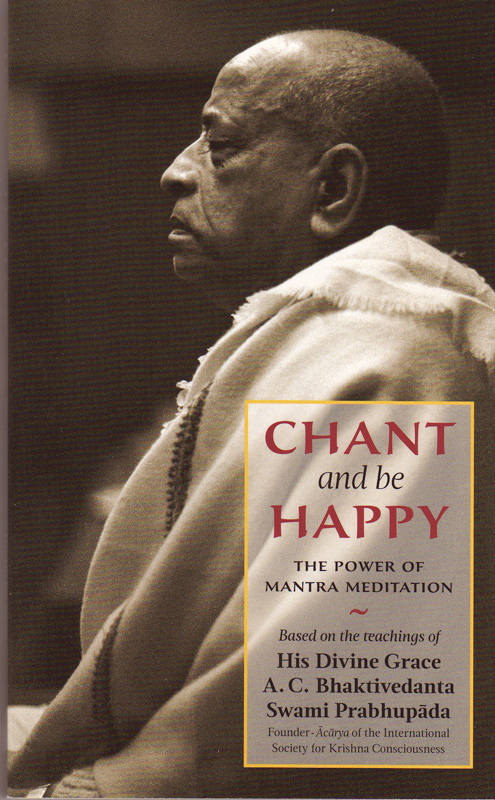 Just to clarify, this entry is another book review. It doesn’t actually say clearly who wrote it, so I decided to avoid putting an author’s name in the title. I was lucky enough to get this book for free, but even if you buy it new, it is still very cheap, so this alone is one good point if you’re looking for an economical read.
Just to clarify, this entry is another book review. It doesn’t actually say clearly who wrote it, so I decided to avoid putting an author’s name in the title. I was lucky enough to get this book for free, but even if you buy it new, it is still very cheap, so this alone is one good point if you’re looking for an economical read.
Basically, what the book sets out to do is introduce people to the idea of Hare Krishna chanting. It talks a lot about how true happiness cannot be found through material gains, and other such things. I suppose this is quite a good line of argument really, I think everybody agrees that happiness cannot be obtained through material objects alone and this proposes a way to achieve proper happiness (Hare Krishna chanting). The idea is that the vibrations caused by the chanting will make you aware of God, and God is pure love and therefore it will make you very happy. I do partially agree with the idea that certain vibrations evoke certain things from people: why is it, for example, that a particular piece of music will make us feel either happy or sad? So it’s an interesting idea that sound vibrations can bring people close to God.
However, while they may back up their claims by giving numerous personal accounts from people, other than that, they stereotype anybody who doesn’t believe in the mantra’s ability as ‘intellectuals’ and paint them as rather snobbish close minded people. Arguing for something by criticising the people who don’t believe in it seems to be rather silly, in my opinion (not to mention rude!) I can’t say that I was won over by their arguments.
Perhaps my favourite parts of the book though, were the conversations with George Harrison, John Lennon and Yoko Ono. I’m quite a Beatles fan (as I’m sure regular readers of this blog will know) so it was nice to learn a little about their involvement with bringing Hare Krishna chanting to the western world. There was also a nice little story taken from the mythologies surrounding the mantra, which takes up one of the chapters.
On the whole, while all the information on beliefs about the mantra, its history, and links with The Beatles, was very interesting, there were some parts of the book which bothered me. Firstly, I don’t believe that the Hare Krishna mantra does link somebody to God, so that makes me into one of their snobbish ‘intellectuals’, though having said that, I think it’s very possible that chanting it could make people happy, sound vibrations CAN make you happy (for example, as I said before, happy songs) so whether you believe that this links you to God or not, it could be interesting to try.
Also, the ending, in my opinion, is very bad. Throughout the book, they seem to be merely politely suggesting that you should try the chanting to see if it makes you happy, then at the end it suddenly gives you rules such as “Be a vegetarian” and “Only have sex if you are married and it will produce God-conscious children” which is ridiculous. There isn’t even any real argument for it, they just say it. Plus, there’s the very unfortunate fact that they are ruling out homosexuals (they just seem to be too scared to say it outright). So while it was certainly interesting (I always love to learn about the beliefs of others) at times I felt its points were argued poorly, and at other times downright disagreeable things were said. I’d rate it a 6/10.
